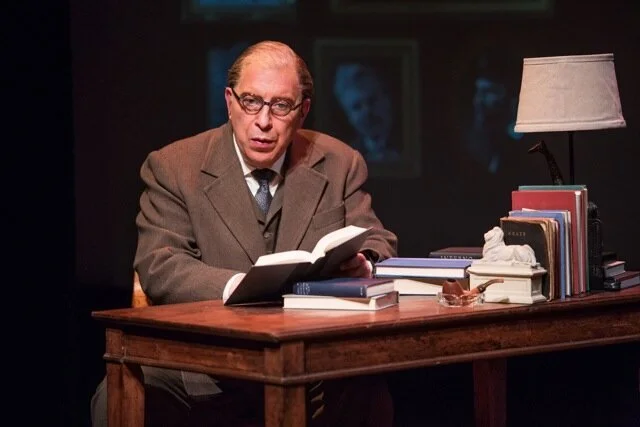The Men and Their Myths: Martin Luther King Jr. and C. S. Lewis
1013px-USMC-09611-998x726.jpg
By Mark Rodgers “I just want to do God’s will. And He’s allowed me to go to the mountain. And I've looked over, and I've seen the promised land. I may not get there with you, but I want you to know tonight that we as a people will get to the promised land. So I'm happy tonight. I'm not worried about anything. I'm not fearing any man.” -- Martin Luther King, Jr. from his speech the night before his assassination. Last month, as we remembered the life and death of Martin Luther King, Jr. we were also reminded that the promised land he saw is the Promised Land we still yearn for, whether or not we fully get there this side of the Next and the New. Having worked in Congress for 16 years, and recently with a number of foundations, nonprofits, companies and visionary creatives, I am convinced that the desire and drive to create a better world is universal. Perfect justice, full equality, personal wholeness, mutual flourishing, peace, and shalom are what we yearn and strive for in our personal and collective lives. This is the Promised Land. And even when we differ on aspects of where we want to go, much less how to get there, the desire is still shared. We know, again in our souls, that there is a better place we want to get to. This yearning is expressed in movements as diverse as #Me Too, Black Lives Matter and the March for Life. They beg the question: how do we know that there is a Promised Land? Do our marches take us on a road somewhere, or are they all dead ends, or worse? I believe that the best we can do on this side of the Next is, as my friend Steve Garber calls it, approximate justice. That’s as close as we can get. We know deep in our souls that as long as people are in charge of our affairs, including ourselves, we won’t get there. My wife and I were blessed recently by a conversation with Max McLean after his one-man show about C. S. Lewis called The Reluctant Convert. We were reminded that Lewis’ conversion came from the realization that the myths he studied as an Oxford don were all shadows of the One True Myth, but that his journey from atheism to eventual certain faith was actually seeded as a child when he was awakened to something outside himself, something that we all yearn for he called “joy”:“As I stood beside a flowering currant bush on a summer day there suddenly arose in me without warning, and as if from a depth not of years but of centuries, the memory of that earlier morning at the Old House when my brother had brought his toy garden into the nursery. It is difficult to find words strong enough for the sensation which came over me; Milton's 'enormous bliss' of Eden (giving the full, ancient meaning to 'enormous') comes somewhere near it. It was a sensation, of course, of desire; but the desire for what?... Before I knew what I desired, the desire itself was gone, the whole glimpse ... withdrawn, the world turned commonplace again, or only stirred by a longing for the longing that had just ceased ... In a sense the central story of my life is about nothing else ... The quality common to the three experiences ... is that of an unsatisfied desire which is itself more desirable than any other satisfaction.” -- from Surprised by JoyThis idea that we are yearning for something “more desirable”, something “above and beyond”, was also the basis of his argument for the existence of God as expressed in Mere Christianity’s first section “Right and Wrong as Clue to the Meaning of the Universe”: “Consequently, this Rule of Right and Wrong, or Law of Human Nature, or whatever you call it, must somehow or other be a real thing—a thing that is really there, not made up by ourselves. And yet it is not a fact in the ordinary sense, in the same way as our actual behavior is a fact. It begins to look as if we shall have to admit that there is more than one kind of reality; that, in this particular case, there is something above and beyond the ordinary facts of men’s behavior, and yet quite definitely real—a real law, which none of us made, but which we find pressing on us.”Is the Promised Land a cruel farce? Is joy a fleeting emotion? Is a justice a myth? No. While we live in these shadowlands, they all point us toward what is to come, they ground our hope in things certain but still unseen. They are, as U2 sang, what our souls are truly looking for: I believe in the Kingdom come Then all the colors will bleed into one bleed into one but yes, I'm still running you broke the bonds and you loosened chains carried the cross of my shame, of my shame you know I believe it but I still haven't found what I'm looking for but I still haven't found what I'm looking for -U2




